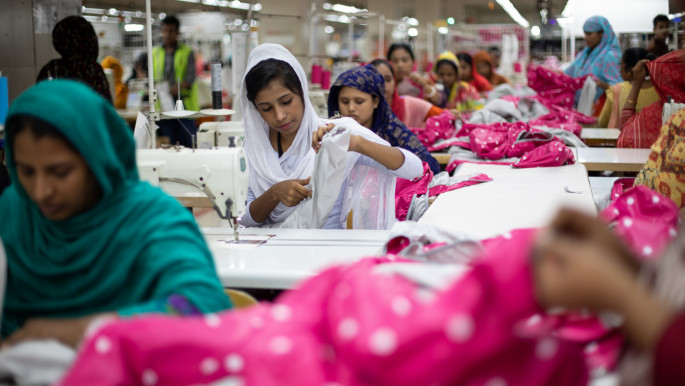Fashion brands sourcing clothes from Bangladesh for the British market reportedly paid the factories below the cost of production, says a study by the University of Aberdeen alongside the UK-based justice charity Transform Trade.
Many suppliers were paid the same prices as before the pandemic two years ago despite the soaring costs of materials, finds the survey conducted on 1,000 factories. The report covered the period from March 2020 to December 2021.
Muhammad Azizul Islam, professor of sustainability accounting and transparency at the University of Aberdeen and the project’s lead, said larger brands buying from many factories were engaging in unfair purchasing practices more frequently than smaller brands, according to suppliers.
One in five factories surveyed for the research said they struggled to pay Bangladesh’s £2.30 a day minimum wage.
“Two years on from the start of the pandemic, Bangladeshi garment workers were not being paid enough to live on, with one in five manufacturers struggling to pay minimum wage while many fashion brands which use Bangladeshi labour increased their profits,” he said.
“Inflation rates soaring around the world are likely to have exacerbated this even further,” he added.
The study has also found that 90% of larger high street brands buying from four or more factories were reported as engaging in unfair purchasing practices. That included cancellations, failure to pay, delays in payment, and discount demands, with knock-on effects such as forced overtime and harassment.
Several retailers denied the claims made in the report.

“Retailers say in their reports that they have a commitment to the workers and they have made progress, but transparency is a big problem in the sector and it is difficult to establish if certain products are ethically produced,” Professor Muhammad Azizul Islam further said.
Faruque Hassan, president of the Bangladesh Garment Manufacturers and Exporters Association (BGMEA), told TBS, “This research may help to alert consumers about creating pressure on retailers to pay ethical prices for apparel.”
“We are very transparent in terms of child labour, forced labour, and workplace safety in the industry,” he said, adding, “Buyers are asking for transparency but they are not transparent to their consumers or suppliers.”
If consumers, buyers, and retailers pay fair prices, factory owners will be able to pay higher wages to their workers, added the BGMEA president.
Asked about this issue, Mohammad Hatem, executive president of the Bangladesh Knitwear Manufacturers and Exporters Association (BKMEA), said international buyers and retailers always try to reduce apparel prices, in some cases even offering lower prices than the production costs.
Buyers always take advantage of exporters’ weaknesses, he noted, explaining, “If any manufacturer faces an order shortage than their production capacity, then they [buyers] offer lower prices. Since now the global apparel market is experiencing sluggish demand, buyers are trying to cash in on that.”
In some cases, buyers also create unhealthy competition among exporters to reduce prices, said Mohammad Hatem.
On the other hand, when raw prices go down a little, buyers push manufacturers to reduce prices even by more than double the reduced material costs, he added.
The BKMEA executive president went on to say that some factory owners also held some unscrupulous exporters responsible for lowering prices. Some factory owners want to whiten their black money and prices do not matter to them. Also, there were some factory owners who were not directly involved with the business and tried to receive orders to their full capacity at any price, but after 2-3 years they failed to repay their bank loans, he added.
Buyers have no commitment to creating a transparent supply chain instead of making business and putting pressure on factories to pay high wages to workers, noted Hatem.
“If retailers do not pay better prices, how will factory owners pay better wages to workers?” he questioned.
















